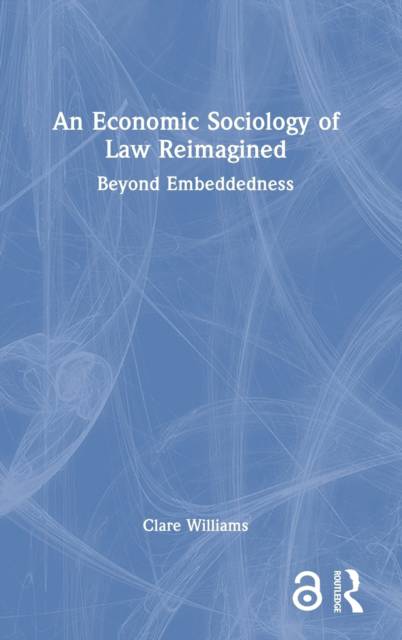
- Afhalen na 1 uur in een winkel met voorraad
- Gratis thuislevering in België
- Ruim aanbod met 7 miljoen producten
- Afhalen na 1 uur in een winkel met voorraad
- Gratis thuislevering in België
- Ruim aanbod met 7 miljoen producten
Omschrijving
This book critically examines the concept of "embeddedness" the core concept of an economic sociology of law (ESL).
It suggests that our ways of doing, talking, and thinking about law, economy, and society, reproduce and re-entrench mainstream approaches, shaping our thoughts and actions such that we perform according to the model. Taking a deep dive into one example - the concept of embeddedness - this book combines insights from law, sociology, economics, and psychology to show that while we use metaphor to talk about law and economy, our metaphors in turn use us, moulding us into their fictionalized caricatures of homo juridicus and homo economicus. The result is a groundbreaking study into the prioritization throughout society of interests and voices that align with doctrinal understandings of law and neoclassical understandings of economics: approaches that led us into the dilemmas currently facing society. Zooming out from a detailed exploration of embeddedness in economic sociology and ESL literature, the book unpacks the fashionable post-2008 claim that the economy should be re-embedded in society and proposes two conceptual shifts in response. The book draws on personas and vignettes throughout, both to imagine and to realize shifting an ESL beyond embeddedness.
This timely engagement with the emerging field of economic sociology of law will appeal to socio-legal scholars and others with interests in the intersection of law, economics, and sociology.
The Open Access versions of Chapter 1 and Chapter 6, available at www.taylorfrancis.com, have been made available under a Creative Commons Attribution-Non Commercial-No Derivatives 4.0 license.
Specificaties
Betrokkenen
- Auteur(s):
- Uitgeverij:
Inhoud
- Aantal bladzijden:
- 188
- Taal:
- Engels
Eigenschappen
- Productcode (EAN):
- 9780367761448
- Verschijningsdatum:
- 14/12/2022
- Uitvoering:
- Hardcover
- Formaat:
- Genaaid
- Afmetingen:
- 156 mm x 234 mm
- Gewicht:
- 467 g

Alleen bij Standaard Boekhandel
Beoordelingen
We publiceren alleen reviews die voldoen aan de voorwaarden voor reviews. Bekijk onze voorwaarden voor reviews.












